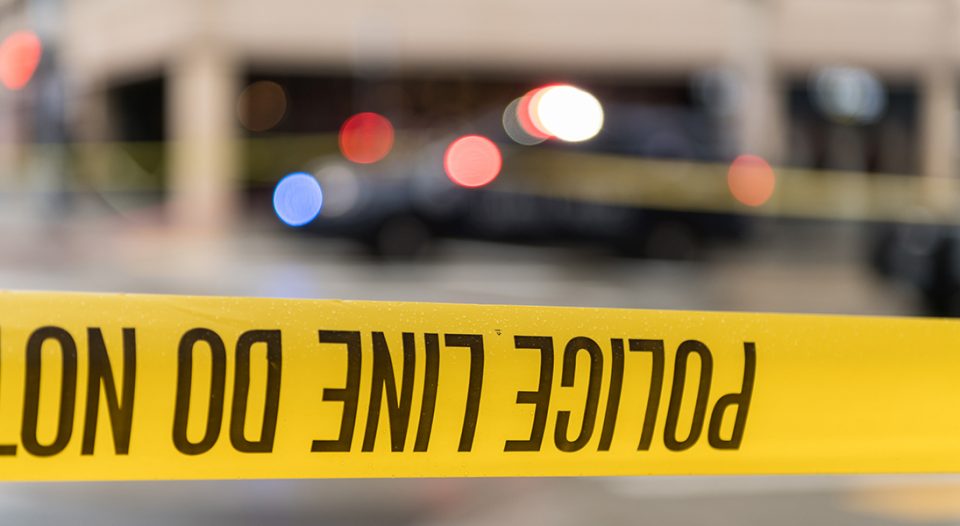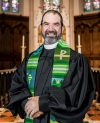“I just don’t understand why,” he said to me, shaking his head. “Why would someone drive so far to do this to us?”
We were walking away from the scene in front of the Tops supermarket on Jefferson Avenue in Buffalo the day after a white supremacist gunman killed 10 people there. Walking in the same direction, I asked, “Is your family safe? How are you doing with all of this?” He said they were safe and, as the tears fell, again asked this question of God as much as me:
“Why would someone drive 3-1/2 hours to do this to us?”
There is so much in that question to break down. Why do dreadful things happen to good people? Why did this happen in this place? Why would a person drive so far to perpetrate such an atrocity?
We have heard with our ears, O God,
our ancestors have told us
what deeds you performed in their days,
in the days of old. . . .
[Yet] you have made us like sheep for slaughter,
and have scattered us among the nations. . . .
Rouse yourself! Why do you sleep, O Lord?
Awake, do not cast us off forever! (Psalm 44:1, 11, 23).
Most of these questions I have no answers for. I join in with the petitioner and pray the Holy Spirit will intercede for us when sighs are too deep for words.
What then are we to say about these things?
If God—who is maker of heaven and earth, creator of our first ancestors and of all nations; who calls each of us “good” and “beloved” and an “inheritor” of abundant life—is for us, then what are we to say about these things?
Our first witness is rooted in our Lutheran theological identity. God in Christ has come down to us, to the world, because God loves God’s people so much. God in Christ through the whole church is present on the ground, on the scene. Since the event happened, ministers in and around Buffalo have been on the scene to hold those who are falling, comfort those who are grieving and pray with those who are watching and witnessing. God is here.
Our synod, church together, is also present through the ministries of the Community of Good Neighbors, which accompanies families on the east side of Buffalo, in addition to Holy Trinity, Parkside, Grace and the greater Niagara Frontier Conference. Kwame Pitts, pastor of Crossroads Lutheran Church; Jeremiah Smith, conference dean and pastor of Parkside Lutheran Church; and Imani Olear, director for evangelical mission and assistant to the bishop in the synod, are coordinating local responses for donations of time, food and resources for mental health care.
Most of these questions I have no answers for.
Our second response is that those of us of European descent are called to acknowledge the pain, conflict and hatred in our communities and culture, and spend some time in the discomfort of this tragedy without trying to find a “quick fix” to the issue. Contributions to the victims’ funds and ministries to Buffalo are a support, but they are not a cure, or even a Band-Aid, for the underlying issues of racism and white supremacy that were at the core of the motive for the assailant.
Let us be of one mind. We in the Upstate New York Synod and in the Evangelical Lutheran Church in America reject racism and a white supremacy worldview and mindset. We renounce the ways Scripture has been used to support genocide, enslavement, oppression and mass incarceration. We acknowledge, lament and repent the ways we have been complicit in a white-dominant culture that supports competitive individualism, binary ways of problem solving, seeking comfort over reparations and centering power within, thereby marginalizing the experience, voice and thoughts of others.
What then shall we say about this?
God is present. God’s love is active in the world. God’s love was visible on Saturday, May 14, in the love and service of Tops associates, in the love poured out by neighbors who stopped to care for those who were harmed, in the courage of the security officer and the first responders, police officers and paramedics. Love was visible in a community that began to envelop itself in care and support. Love is ongoing in the outpouring of resources for the immediate needs of those directly impacted. Love is palpable in the various calls, messages, texts and emails sent to those who live in Buffalo, each one asking, “Are you safe?” So, let’s say that God is here. Love is here.
And too we will sit, remember, reflect and consider our own selves and our communities. How is God at work in our lives and in the life of our congregation? How is the love of God in Christ making “all things new”? How is God at work in you to make God’s love known, given the brokenness that we have experienced? How is God using you as an instrument of God’s love and peace?
Finally, beloved, we are convinced, amid all this, as we grieve and lament, remember and resolve, that:
Neither death, nor life, nor angels, nor rulers, nor things present, nor things to come, nor powers, nor height, nor depth, nor anything else in all creation, will be able to separate us from the love of God in Christ Jesus our Lord (Romans 8:38-39).
Thanks be to God.



